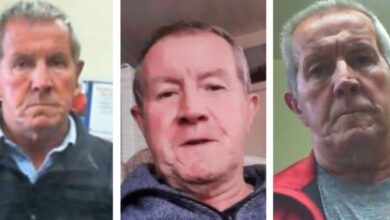Former military chief calls for ‘thorough investigation’ of SAS Afghanistan killing claims

The head of the British military at the time SAS soldiers are accused of executing civilians and unarmed detainees in Afghanistan says there should be a “thorough investigation” if new evidence has emerged about the killings.
A BBC Panorama programme claims one SAS unit was responsible for up to 54 deaths in secret operations that took place during a six-month tour of duty in Helmand in 2010 and 2011.
The documentary led to recriminations even before it was broadcast on Tuesday night. The Ministry of Defence (MoD) accused the programme makers of making claims that are “irresponsible, incorrect and puts our brave Armed Forces personnel at risk both in the field and reputationally”.
However, General Sir David Richards, the former chief of the defence staff (CDS) during the period of the alleged killings told the BBC: “In my experience, worrying events of the type captured by Panorama are very rare in the British armed forces.
“That said, given the compelling nature of the programme, if I was still the chief of the defence staff I would order a thorough investigation of the events portrayed. I have no doubt that Admiral (Sir Tony) Radakin, the current chief of the defence staff, will do this.”
The Independent understands Gen Richards was unaware of the allegations at the time. Senior officers say measures were then in place to ensure any reports of such serious issues would go up the chain of command and “find it difficult to believe” that such systematic killings would have taken place without them knowing about it.
Gen Richards, now Baron Richards of Herstmonceux, has extensive experience of the Afghan mission. He was the head of the International Security Assistance Force (ISAF) when the conflict erupted five years after the fall of the Taliban.
The MoD began an investigation into alleged offences by British forces in Afghanistan – including claims of fatal shootings by the SAS codenamed Operation Northmoor – in 2014 which ended four years later with the government announcing that there was no evidence of criminality.
Panorama claimed an earlier inquiry by the Royal Military Police (RMP) in 2013 into deaths in the hands of the Special Forces was hampered by the investigators not being given access to information held by UK Special Forces Headquarters.
Material containing concerns about actions of some soldiers was put into a restricted-access classified file under “anecdotal information about extrajudicial killings” accessible only to a handful of senior officers.
Examining official documents, the BBC held there were “strikingly similar reports” compiled after deaths during operations in the hours of darkness in SAS “kill/capture” missions. The “night raids” were eventually suspended at the request of the Afghan government.
Some suspects were lethally targeted on flawed intelligence. There were also claims that the SAS troops planted weapons, mainly AK-47 rifles, to justify killings on grounds of self-defence.
Among examples of supposed extra-judicial killings was that of Haji Ibrahim, a former district governor on the night of 29 November 2010. The SAS report stated that he was arrested, taken into a building to help carry out a search, and then shot dead “when he demonstrated hostile intent by brandishing a hand grenade”.
Mr Haji’s family, however, insist his hands were bound when he was killed and that his son had to cut the plastic handcuffs from his wrists before they carried out the burial.
On 15 January 2011, SAS soldiers killed a man who had been detained. The official report said he “reached behind a mattress, pulled out a hand grenade, and attempted to throw it”. In another raid, on 7 February, the SAS team killed a detainee who they said had “attempted to engage the patrol with a rifle”. The same justification was given for the fatal shooting of two detainees on 9 and 13 February.
An MoD spokesperson said: “We believe that BBC Panorama episode about SAS operations in Afghanistan … jumps to unjustified conclusions from allegations that have already been fully investigated. The MoD of course stands open to considering any new evidence, there would be no obstruction. But in the absence of this we strongly object to this subjective reporting.”
Australian special forces were found in an inquiry to have been involved in the homicide of 39 Afghan civilians, killing prisoners to “blood” junior soldiers before inventing cover stories and planting weapons on bodies. The MoD pointed out that no British personnel were involved in those operations.





